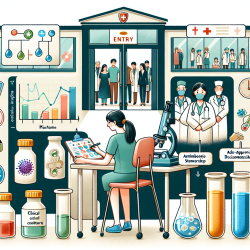Introduction: The Global Challenge of Stroke Prehospital Care
Stroke remains a leading cause of death and disability worldwide, necessitating urgent and effective prehospital care. The 2024 closed-door round table discussion brought together global experts to address these challenges and propose actionable strategies for improvement. This blog post delves into the insights shared during this pivotal meeting and explores how practitioners can leverage these findings to enhance their skills and ultimately improve patient outcomes.
Key Insights from the Round Table Discussion
The round table discussion highlighted several critical areas for improvement in stroke prehospital care:
- Rapid Response Programs: Programs like "Stroke 1-2-0" and "Stroke 911" were emphasized for their effectiveness in promoting swift action and awareness. These programs aim to educate the public and streamline emergency responses, ensuring timely medical intervention.
- Standardized Training for EMS: The need for standardized training protocols for Emergency Medical Services (EMS) was underscored. This includes on-scene evaluation and management techniques that are crucial for improving patient outcomes.
- Global Stroke Awareness Initiatives: The experts advocated for universal stroke awareness programs to overcome language and response barriers, ensuring that communities worldwide are equipped to recognize and respond to stroke symptoms promptly.
Implementing Data-Driven Strategies in Practice
For practitioners looking to enhance their skills, integrating data-driven strategies into practice is essential. Here are some actionable steps based on the discussion outcomes:
- Adopt Rapid Response Protocols: Implementing protocols like "Stroke 1-2-0" can significantly reduce prehospital delays. Training staff and educating the community about these protocols can lead to faster recognition and response times.
- Enhance EMS Training: Invest in regular training sessions for EMS personnel, focusing on the latest evaluation and management techniques. This ensures that they are well-prepared to handle stroke emergencies efficiently.
- Promote Stroke Awareness: Engage in community outreach programs to raise awareness about stroke symptoms and the importance of immediate medical attention. Utilize social media and local events to disseminate information widely.
Encouraging Further Research and Collaboration
The round table discussion also highlighted the importance of ongoing research and international collaboration. Practitioners are encouraged to engage in research initiatives and collaborate with global experts to share knowledge and best practices. By staying informed about the latest developments in stroke care, practitioners can continue to refine their skills and contribute to the global effort to reduce stroke-related mortality and morbidity.
Conclusion: A Call to Action
The insights from the 2024 round table discussion provide a roadmap for practitioners seeking to improve stroke prehospital care. By implementing these strategies and engaging in further research, healthcare professionals can make a significant impact on patient outcomes. Together, we can transform stroke care and save lives.
To read the original research paper, please follow this link: Expert opinions from the 2024 closed door round table discussion on improving stroke prehospital care globally.










